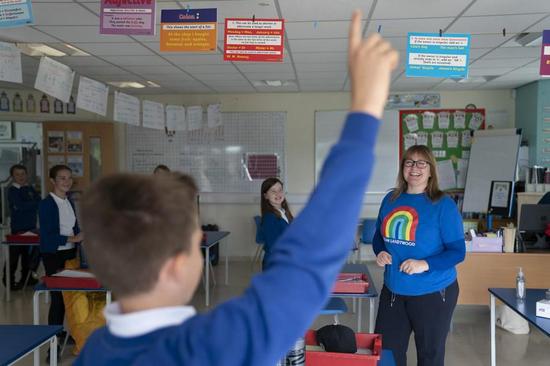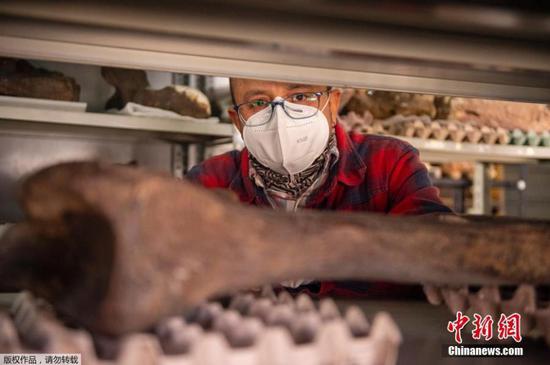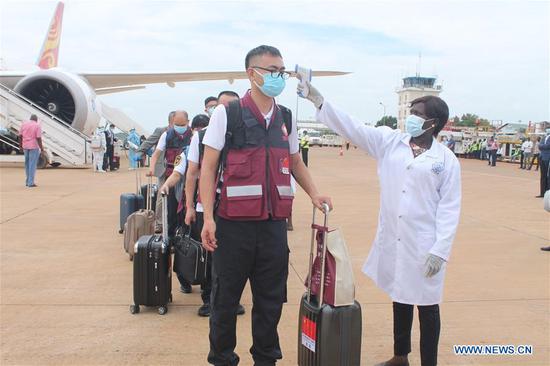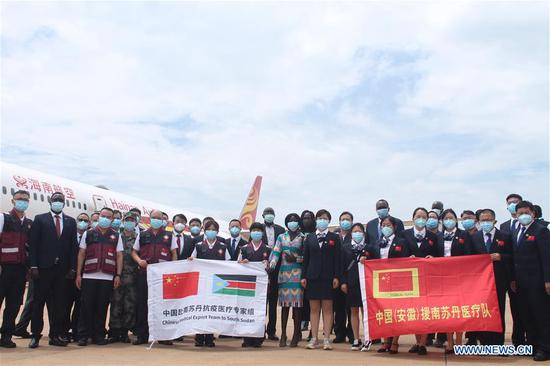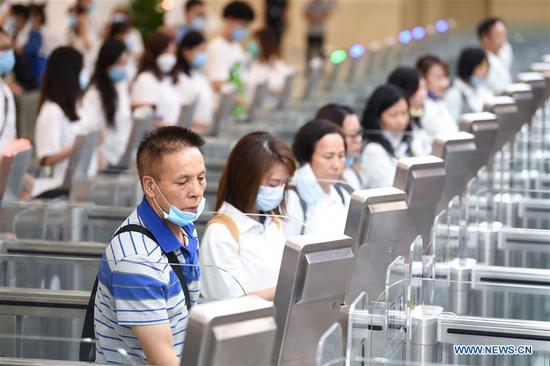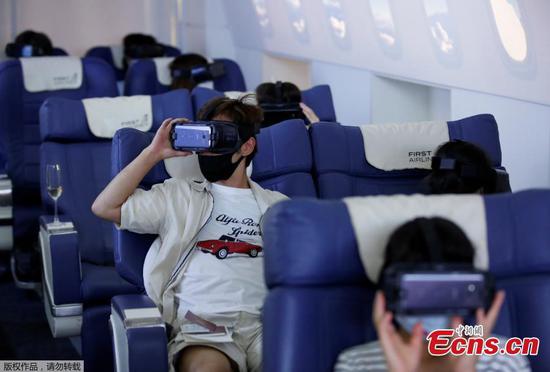United Airlines plans to permanently drop its $200 change fee for domestic flights as part of a continuing effort to entice customers to travel again amid the novel coronavirus pandemic.
United joins rival Southwest Airlines, which doesn't charge a fee to change flights. Some carriers have temporarily waived the fee during the pandemic.
"When we hear from customers about where we can improve, getting rid of this fee is often the top request," United CEO Scott Kirby said in a statement.
Effective immediately, United customers with premium-class and standard economy tickets will be permitted to change flights without paying a fee. However, passengers still will be responsible for any difference in fare.
In January, United announced that travelers who wanted to catch an earlier or later flight the same day would be permitted to fly standby without being charged a $75 fee.
Some consumer groups have long urged airlines to drop change fees because the cost can be as much as about half the price of a ticket.
United's decision could be an expensive bet.
U.S. airlines made $2.8 billion in reservation change fees in 2019, or about 1.4 percent of total operating revenue, the U.S. Department of Transportation said.
In the first quarter of 2020, United earned more than $133 million in cancelation and change fees.
But baggage fees earned more for carriers, generating $5.8 billion, or about 2.9 percent, in operating revenue, the federal agency reported.
As part of efforts to make its planes safer, United said it runs high-efficiency particulate air (HEPA) filters on all "mainline" aircraft from boarding through deplaning, uses electrostatic spraying to disinfect aircraft prior to flight and disinfects "high-touch" areas such as tray tables and armrests.
Air travel increased in May and June after bottoming out in mid-April as concern about the coronavirus increased. But bookings slid industrywide in July and remain far below prepandemic levels.
In a recent conference call with Wall Street analysts, American Airlines said bookings were down about 80 percent from the same period a year ago and down about 50 percent from June's rebound.
"We expect trends will likely continue to be volatile," said Goldman Sachs in a research report.
U.S. airlines and carriers worldwide have reported billions in losses and have cut flights and furloughed workers in response to declining traffic.
Thousands of domestic employees could lose their jobs Oct 1 with the expiration of a payroll support program created by the Coronavirus Aid, Relief and Economic Security (CARES) Act, a $2.2 trillion economic stimulus bill signed into law by President Donald Trump in March.
Earlier this summer, United said as many as 36,000 employees, or about 45 percent of its U.S. staff and more than a third of its entire workforce of 95,000, could face layoffs starting Oct 1.
The hardest hit would be flight attendants, gate agents and airport customer service representatives, who account for about 26,000 of the 36,000 facing layoffs.
The airline said it also could lay off as many as 2,250 pilots. The balance would come from administrative and office personnel.
"The reality is that United simply cannot continue at our current payroll level past October 1 in an environment where travel demand is so depressed," the airline said in a statement. "Involuntary furloughs come as a last resort, after months of company-wide cost-cutting and capital-raising."
United invested heavily in the fuel-efficient Boeing 737 MAX and therefore faces additional risk as the jetliner's recertification is now being considered by the U.S. Federal Aviation Administration following crashes in Indonesia and Ethiopia that killed a total of 346 passengers and crew.











